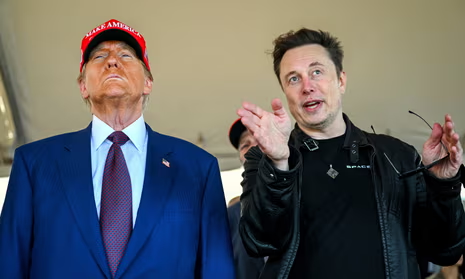A U.S. judge ruled Saturday that President Donald Trump’s decision to fire the head of a federal watchdog agency was illegal, marking an early test of presidential authority that could ultimately reach the U.S. Supreme Court.

U.S. District Judge Amy Berman Jackson determined that Trump lacked the power to remove Hampton Dellinger, the head of the Office of Special Counsel, an agency responsible for protecting whistleblowers. Jackson had previously allowed Dellinger to remain in his role while the case was under review.
In her ruling, Jackson stated that granting Trump the ability to dismiss Dellinger would effectively give him “a constitutional license to bully officials in the executive branch into doing his will.”
The Justice Department quickly filed an appeal late Saturday, seeking to overturn the ruling at the U.S. Court of Appeals for the District of Columbia.
Dellinger, who was appointed by Democratic President Joe Biden and confirmed by the Senate for a five-year term, welcomed the decision. “I am grateful to see the court confirm the importance and legality of the job protections Congress afforded my position,” he told Reuters in an email. He vowed to continue efforts to protect federal employees and whistleblowers from unlawful treatment.
Trump administration lawyers argued that the court’s decision to keep Dellinger in office unlawfully restricted Trump’s authority over executive branch officials. However, Jackson, an Obama appointee, rejected their claims, stating that the Special Counsel’s role is to investigate unethical and unlawful conduct affecting federal employees and to safeguard whistleblowers from retaliation.
“It would be ironic, to say the least, and inimical to the ends furthered by the statute if the Special Counsel himself could be chilled in his work by fear of arbitrary or partisan removal,” Jackson wrote in her decision.
The Supreme Court, which has already delayed ruling on the case, may soon weigh in on the matter. Trump has sought to curtail the independence of several federal agencies, including the Federal Trade Commission, the Securities and Exchange Commission, and the Federal Communications Commission. A ruling in Dellinger’s case could have significant implications for the limits of presidential authority over agency heads.
Jackson emphasized that her ruling was “extremely narrow” and did not broadly curtail Trump’s executive powers. “This is the only single-headed agency left for the courts to consider, and it is unlike any of them,” she noted.
Acting Solicitor General Sarah Harris argued that Dellinger’s continued tenure was obstructing the Trump administration’s policies, pointing to his intervention on Tuesday in blocking the firings of six probationary government workers the administration had sought to remove.
With the case now heading for appeal, legal experts anticipate further battles over the balance of power between the executive branch and independent federal agencies.



